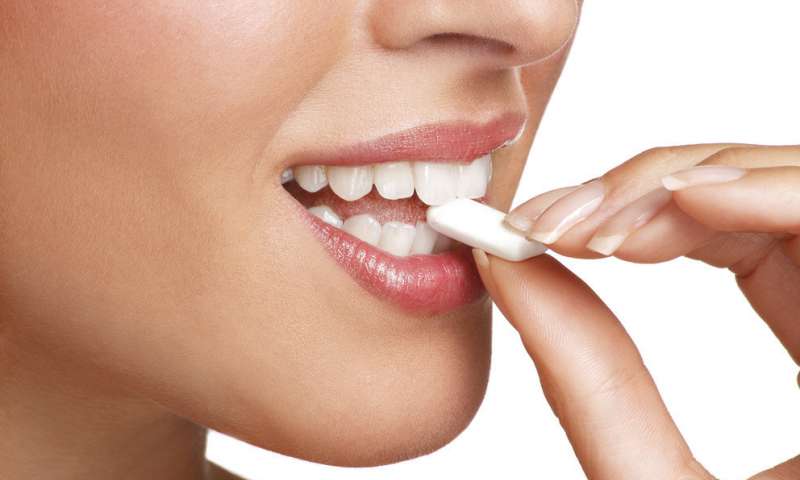Dental News
Individuals should chew sugar-free gum after meals to prevent their teeth from rotting, scientists say. Medical researchers scoured 50-years' worth of studies and found sugar-free chewing gum reduced the risk of
tooth decay by 28 per cent.

It works by causing the mouth to produce more saliva, which helps neutralise and rinse away acid that forms when we eat. These acids typically stick around in the mouth and teeth for 20 minutes after a meal. Chewing gum with sugar can also trigger an increase in saliva but sugar rots teeth, turning into plaque when it reacts with bacteria in the mouth.
Researchers also say artificial sweeteners in sugar-free gum, xylitol and sorbitol, may help with keeping our mouths sterile. They are both thought to increase the production of proteins in the immune system that fight off the germs that rot teeth.
A systematic review by King's College London has found some evidence that chewing sugar-free gum could help to reduce the further development of dental caries (cavities) in adults and children.
Published in the
Journal of Dental Research: Clinical & Translational Research, the review found some evidence that chewing sugar-free gum can reduce the advancement of dental caries, and could be used as a viable preventative agent, in comparison to non-chewing control methods such as oral health education and supervising toothbrushing programmes alone.
It included analysis of studies published over the last 50 years, identifying 12 which explored the impact and intervention outcome of chewing sugar-free gum on oral health conditions, and in particular, dental caries on adults and children. Sugar-free gum was found to reduce caries increment, giving it a preventative factor of 28%.
Professor Avijit Banerjee, Professor of Cariology & Operative Dentistry at King's College London and lead author of the study told
Thailand Medical News, "There is a considerable degree of variability in the effect from the published data and the trials included were generally of moderate quality. However, we felt there was a definite need to update and refresh existing knowledge about sugar-free gum and its effect on dental caries and oral health. We are planning further research to determine the acceptability and feasibility of using this method in public health”
In recent years, chewing sugar-free gum has emerged as a possible supplement to existing prevention strategies in stopping the development of dental caries.
Professor Banerjee added, "Both the stimulation of saliva which can act as a natural barrier to protect teeth, and the mechanical plaque control that results from the act of chewing, can contribute to the prevention of
dental caries. Sugar-free gum can also act as a carrier for antibacterial ingredients including xylitol and sorbitol. No recent conclusive evidence existed prior to this review that showed the relationship between slowing the development of caries and chewing sugar-free gum."
>
Reference: A Systematic Review and Meta-Analysis of the Role of Sugar-Free Chewing Gum in Dental Caries, J.T. Newton, O. Awojobi, M. Nasseripour, https://doi.org/10.1177/2380084419887178
